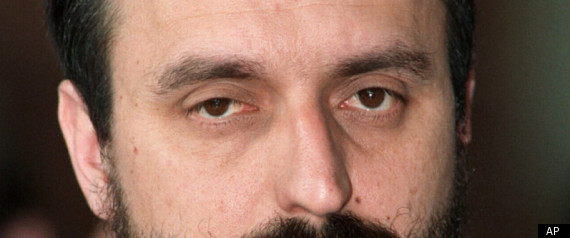By Polly Johnson
Senior Desk Officer, Europe
BUDAPEST, Hungary – Lawyers for Sandor Kepiro, a war crimes suspect who was acquitted on Monday by a Hungarian court on the grounds of insufficient evidence, said on Thursday that they would appeal the court’s ruling because it does not go far enough in clearing Kepiro. The same day, prosecutors said they would appeal the ruling because they found the verdict “unfounded” and “inconsistent.”

Kepiro, 97, is believed to have been responsible for ordering the execution of over thirty Jews and Serbs in Novi Sad in January 1942.
The defense wants the court’s ruling to be based on its assertion that Kepiro did not commit the crimes of which he is accused, rather than on insufficient evidence.
Prosecutor Zsolt Falvai announced his decision to file an appeal immediately after hearing Judge Bela Varga read the verdict.
Prosecutors had originally asked for a prison sentence for Kepiro, arguing that he was directly responsible for the deaths of thirty-six Jews and Serbs in Novi Sad. An estimated 1,200 Jews and Serbs were massacred during a three-day period in 1942, a period that became known as the “Novi Sad Massacre.”
Though Kepiro was convicted in 1944 in Hungary, his conviction was later overturned by the government. He fled to Argentina, only to be tracked down by Nazi hunter and head of the Simon Wisenthal Center’s Israel office Efrain Zuroff.
The judge cited the prosecution’s reliance on old testimony and old verdicts as a basis for Kepiro’s acquittal.
Despite joyful reactions in the courtroom, Jewish groups and Jews across Serbia were disappointed at the verdict.
The Simon Wiesenthal Center, which assisted in bringing Kepiro to court, described the verdict as “outrageous,” and “an insult to the victims, an insult to the Jewish community, to the Serbian community, and [ ] a very sad day for Hungary.”
The American Gathering of Jewish Holocaust Survivors and Their Descendants group, based in New York, also expressed dismay at the verdict.
“Hungary has turned its back on history in failing to come to grips with its collaborationist policies with the Nazi regime during World War II,” the group’s vice president said in a statement, calling the decision “a betrayal by Hungarian judicial authorities of the demands of justice and memory.”
In related news, it was reported on Saturday in a German newspaper that John Demjanjuk, who was convicted this year for his role in the murders of thousands of Jews at the Sobibor Nazi death camp, may be prosecuted for similar crimes at another camp.
For more information, please see:
Washington Post – APNewsBreak: Defense appeals acquittal in Hungary war-crimes trial – 20 July 2011
European Jewish Press – Prosecutor to appeal Hungarian Nazi war crimes verdict, Simon Wiesenthal Centre speaks of an ‘outrageous miscarriage of justice’ – 20 July 2011
Bloomberg – Hungary Prosecutor to Appeal Nazi-Era War Crime Ruling, MTI Says – 19 July 2011
Jerusalem Post – Officer suspected of complicity in ’42 massacre acquitted – 19 July 2011
RTT News – Hungarian Court Acquits Nazi War Crimes Suspect – 19 July 2011
Jerusalem Post – ‘John Demjanjuk could face more death camp charges’ – 16 July 2011

